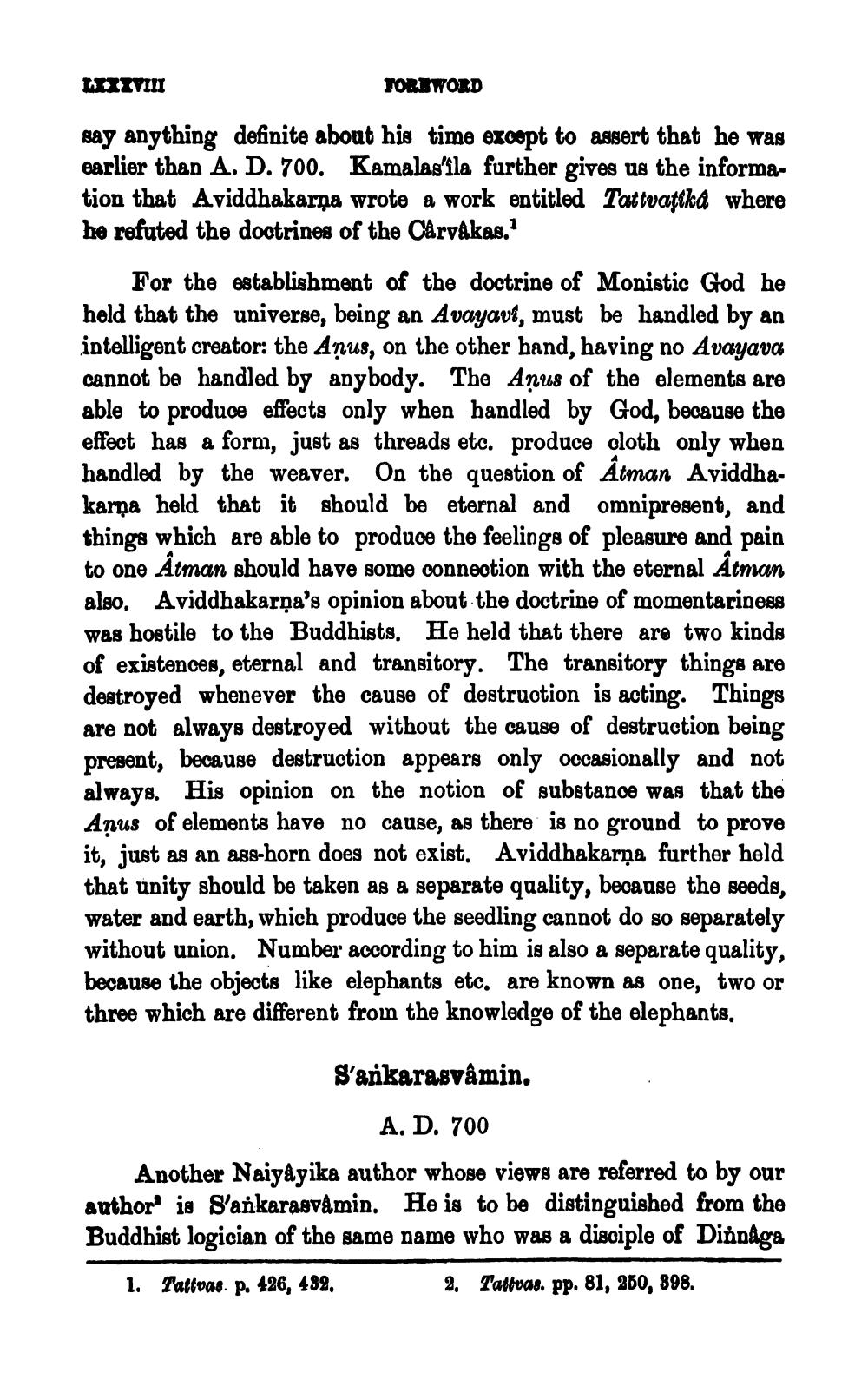________________
LEXXVIII
TOREWORD
say anything definite about his time except to assert that he was earlier than A. D. 700. Kamalas'ila further gives us the information that Aviddhakarna wrote a work entitled Tattvaţika where he refuted the doctrines of the Carvakas."
For the establishment of the doctrine of Monistic God he held that the universe, being an Avayavi, must be handled by an intelligent creator: the Anus, on the other hand, having no Avayava cannot be handled by anybody. The Anus of the elements are able to produce effects only when handled by God, because the effect has a form, just as threads etc. produce cloth only when handled by the weaver. On the question of Atman Aviddhakarna held that it should be eternal and omnipresent, and things which are able to produce the feelings of pleasure and pain to one Atman should have some connection with the eternal Atman also. Aviddhakarna's opinion about the doctrine of momentariness was hostile to the Buddhists. He held that there are two kinds of existences, eternal and transitory. The transitory things are destroyed whenever the cause of destruction is acting. Things are not always destroyed without the cause of destruction being present, because destruction appears only occasionally and not always. His opinion on the notion of substance was that the Anus of elements have no cause, as there is no ground to prove it, just as an ass-horn does not exist. Aviddhakarņa further held that unity should be taken as a separate quality, because the seeds, water and earth, which produce the seedling cannot do so separately without union. Number according to him is also a separate quality, because the objects like elephants etc. are known as one, two or three which are different from the knowledge of the elephants.
S'ankarasvâmin.
A. D. 700 Another Naiyáyika author whose views are referred to by our author is Sankarasvamin. He is to be distinguished from the Buddhist logician of the same name who was a disciple of Dinnaga
1. Tattvas. p. 426, 432. 2. Tattvas. pp. 81, 280, 898.




